 There is no such thing as a “sin nature.” The Bible never refers to the “sin nature.” It is a myth of modern theology. However, the Bible DOES teach a lot about the “flesh.” This study looks at 1 Corinthians 15:35-58 to learn what the flesh actually is, and what we are to live in the Spirit rather than in the flesh.
There is no such thing as a “sin nature.” The Bible never refers to the “sin nature.” It is a myth of modern theology. However, the Bible DOES teach a lot about the “flesh.” This study looks at 1 Corinthians 15:35-58 to learn what the flesh actually is, and what we are to live in the Spirit rather than in the flesh.
Note that this study is an excerpt from my Gospel Dictionary online course. This course considers 52 key words of the Gospel and thousands of biblical texts. The course contains over 100 hours Bible teaching. You can take the course by joining my online discipleship group.
So let us see what we can learn about the flesh from 1 Corinthians 15:35-58.
The “Flesh” in 1 Corinthians 15:35-58
All flesh is not the same flesh, but there is one kind of flesh of men, another flesh of animals, another of fish, and another of birds (1 Corinthians 15:39).
Now this I say, brethren, that flesh and blood cannot inherit the kingdom of God; nor does corruption inherit incorruption (1 Corinthians 15:50).
One of the first things to note about Paul’s discussion of the bodily resurrection in 1 Corinthians 15 is that he uses the term flesh in reference not only to the human, physical body (sarx and sōma are used interchangeably in 1 Corinthians 15:35-58), but also to the physical body of animals, fish, and birds (1 Corinthians 15:39). If flesh referred to some sort of sinful nature, this text would seem to indicate that animals, fish, and birds also have a sinful nature. Since they do not, it is better to see Paul’s references to flesh as basically synonymous to the physical body made of skin, muscles, and blood.
And yet, as seen in other biblical references, the flesh is more than just the physical body. It also includes the desires and habits of the physical body. This fits perfectly with Paul’s description of the flesh of animals, birds, and fish. Animals are not only different from humans in their physical composition, but also in their fleshly desires, instincts, and habits. This confirms again that flesh is not inherently sinful, but is simply a purely physical, and therefore limited, way of looking at the world and living in it.
God’s Goal for our Flesh
Paul states that our goal, or destiny, is to have our natural bodies become like the spiritual body of Jesus Christ (1 Corinthians 15:42-49). He writes that the natural body comes from dust in the likeness of Adam, but the spiritual body comes from heaven in the likeness of Jesus Christ (1 Corinthians 15:47).

This clearly means that the spiritual body is superior to the natural body. But it does not mean that the natural body is inherently sinful or evil. After all, Jesus had a natural body, and even after His resurrection, His spiritual body was not incorporeal, but was material. He could eat and be touched, but could also pass through walls.
Paul’s point is that the spiritual body of the resurrection is still a physical body, but it will differ in various ways from the natural body we have right now.
Nowhere in this text is a condemnation of the material, fleshly body.
Paul’s only point is that we have one type of body now, and we will have a different type of body in the resurrected stated. It will be more in tune with the things of the Spirit, but it will still be a physical body.
Flesh Cannot Inherit the Kingdom of God?
In regard to life lived according to the flesh, Paul says in 1 Corinthians 15:50 that “flesh and blood cannot inherit the kingdom of heaven.”

It is important to remember first of all that the phrase “inherit the kingdom of heaven” is not equivalent to “going to heaven when we die.” Inheriting the kingdom of heaven is an experience that can be obtained here and now, in this life, before we die. It refers to the practical, day-to-day experience of the rule and reign of God in our lives now.
So when Paul writes about our flesh not being able to experience the rule and reign of God in our lives now, he is pointing out the truth he has written about previously (cf. 1 Corinthians 3:1-4) that life lived according to the flesh is limited in its understanding about how to properly live this life.
Those who live according to the flesh are focused solely on their own physical needs and desires, without any attention given to spiritual truths and godly perspectives. Yes, the fleshly perspective may also include religious zeal for outward obedience to laws and regulations, but such zeal reveals a gaping ignorance of what God really wants from His people.
The spiritual perspective, as seen in Jesus, is one of love, mercy, grace, and forgiveness, and it is this perspective which allows a person to experience the rule and reign of God in their lives now. This perspective will be the only perspective we have in eternity with our glorified spiritual bodies, so as we begin to live in this perspective now, we also begin to gain a preview and foretaste of eternity.
So while the flesh in 1 Corinthians 15 primarily refers to the physical bodies of humans and animals, Paul develops this idea to show that while our resurrected bodies will still be physical, they will also be fully in tune to spiritual realities.
When a person is focused solely on the physical side of life, which includes a zeal for man-made religion, they cannot experience the kingdom of heaven in their life. It is only as we embrace the spiritual principles of love and forgiveness as revealed in Jesus that we will begin to experience all that God wants for us.
 Understanding the Gospel requires us to properly understand the key words and terms of the Gospel. Take my course, "The Gospel Dictionary" to learn about the 52 key words of the Gospel, and hundreds of Bible passages that use these words.
Understanding the Gospel requires us to properly understand the key words and terms of the Gospel. Take my course, "The Gospel Dictionary" to learn about the 52 key words of the Gospel, and hundreds of Bible passages that use these words.
This course costs $297, but when you join the Discipleship group, you can to take the entire course for free.





 The carnal person, then, is the opposite of the spiritual person. The carnal person may appear to be quite “spiritual” and religious, but they are unable to grasp, understand, or practice the greater truths of Christianity which lead us lay down our lives for others in love and service to them. The carnal, or fleshly person is not necessarily one who gives in to the passions and lusts of the flesh, but is rather one who thinks that the chills and thrills of ecstatic religion makes them superior to others.
The carnal person, then, is the opposite of the spiritual person. The carnal person may appear to be quite “spiritual” and religious, but they are unable to grasp, understand, or practice the greater truths of Christianity which lead us lay down our lives for others in love and service to them. The carnal, or fleshly person is not necessarily one who gives in to the passions and lusts of the flesh, but is rather one who thinks that the chills and thrills of ecstatic religion makes them superior to others. It is indeed true that some of the Corinthian Christians were engaging in sinful sensuality (cf. 1 Corinthians 5:1; 6:9-10). But when Paul uses a word to describe this sort of behavior, he does not use the word “flesh” to describe this behavior, but the word “unrighteous” (1 Corinthians 6:9). Yes, fleshly, carnal thinking leads to unrighteous behavior, which is why Paul instructs the Corinthians to hand a man over to Satan for the destruction of his flesh (1 Corinthians 5:5; see Satan for a discussion of what this means).
It is indeed true that some of the Corinthian Christians were engaging in sinful sensuality (cf. 1 Corinthians 5:1; 6:9-10). But when Paul uses a word to describe this sort of behavior, he does not use the word “flesh” to describe this behavior, but the word “unrighteous” (1 Corinthians 6:9). Yes, fleshly, carnal thinking leads to unrighteous behavior, which is why Paul instructs the Corinthians to hand a man over to Satan for the destruction of his flesh (1 Corinthians 5:5; see Satan for a discussion of what this means).

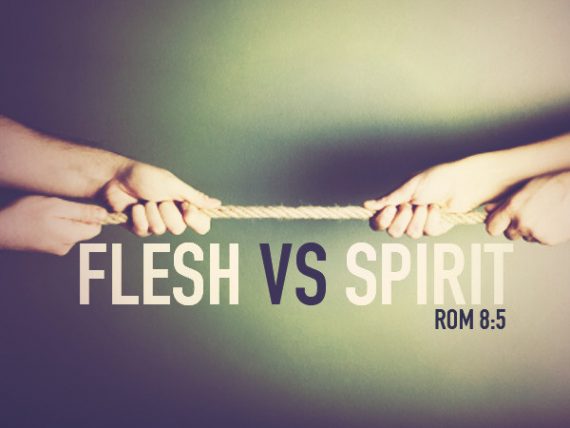

 I read and study Scripture every day, not only for personal and spiritual growth, but also because I like to teach others what I have learned from the Bible.
I read and study Scripture every day, not only for personal and spiritual growth, but also because I like to teach others what I have learned from the Bible.
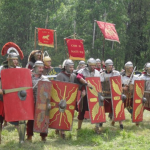
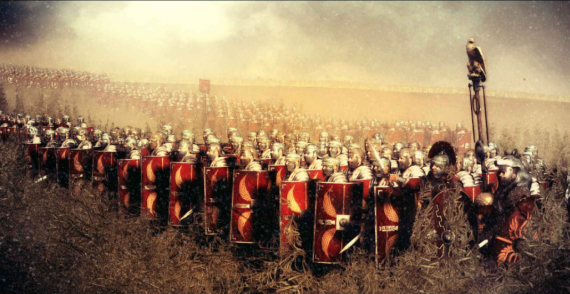
 But sending a runner was not always the best option. Runners could not be used when the distance was too far, when the message was too urgent, or when enemy forces were in the way. So the Roman military devised an ingenious solution for such situations. They developed a system of communication which could quickly send short messages over long distances and even to other units that were separated from the main force.
But sending a runner was not always the best option. Runners could not be used when the distance was too far, when the message was too urgent, or when enemy forces were in the way. So the Roman military devised an ingenious solution for such situations. They developed a system of communication which could quickly send short messages over long distances and even to other units that were separated from the main force.
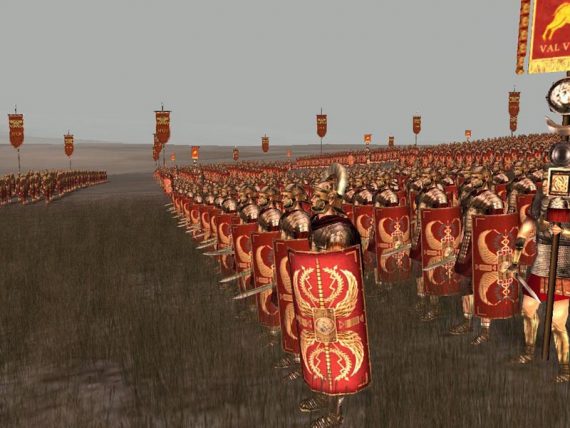


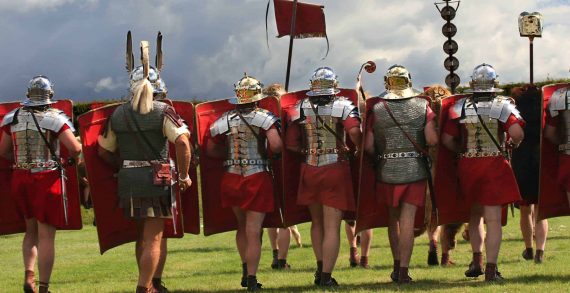
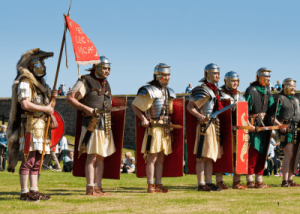
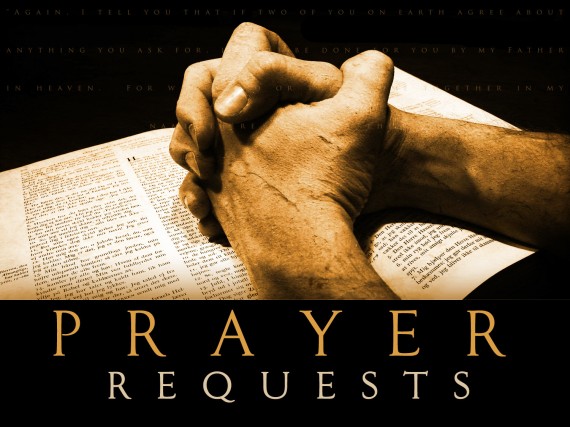
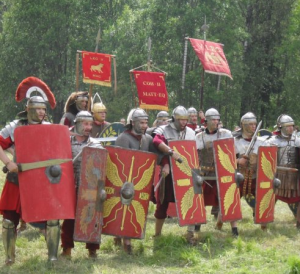

 This bring up the third reason some prayers require perseverance. Sometimes, God does not immediately answer our requests because He wants us to remain in communication with Him. God is not playing games with us by making us wait for some of the things we request, but at the same time, God doesn’t want us to play games with Him.
This bring up the third reason some prayers require perseverance. Sometimes, God does not immediately answer our requests because He wants us to remain in communication with Him. God is not playing games with us by making us wait for some of the things we request, but at the same time, God doesn’t want us to play games with Him. Victor Walter also found that most prayers were for groups of people, rather than for individuals. If a prophet or apostle had an issue with a person or a solution for a problem they faced, they spoke directly to that person about it, rather than praying to God for it.
Victor Walter also found that most prayers were for groups of people, rather than for individuals. If a prophet or apostle had an issue with a person or a solution for a problem they faced, they spoke directly to that person about it, rather than praying to God for it. Indeed, Paul has firsthand knowledge and experience of this front line warfare, and he indicates this by describing himself as an ambassador in chains. Paul wrote the letter of Ephesians from prison, likely while being chained between two Roman guards. And he was in prison because he had declared the gospel, and was facing a death sentence for the same reason.
Indeed, Paul has firsthand knowledge and experience of this front line warfare, and he indicates this by describing himself as an ambassador in chains. Paul wrote the letter of Ephesians from prison, likely while being chained between two Roman guards. And he was in prison because he had declared the gospel, and was facing a death sentence for the same reason.
